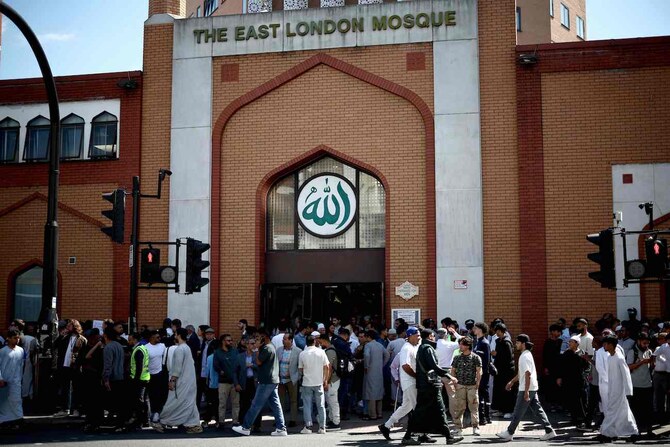LONDON: Three-quarters of Muslims in the UK are concerned for their safety following a spate of far-right riots across the country, according to a survey by the Muslim Women’s Network.
Just 16 percent said they felt the same before the violence erupted. Nearly 20 percent said they had encountered hostility in the UK before the first riot on July 30 in Southport, which was sparked after a mass stabbing at a youth club left three young girls dead and multiple others injured.
Misinformation spread on social media attributed the attack variously to a Muslim or an asylum-seeker.
The alleged attacker was later identified as 17-year-old Axel Rudakubana, who was born in Cardiff.
Rioting spread to other major cities across the UK, with mosques being targeted at numerous locations.
In an interview with Sky News, two Muslim women who were at one of the mosques targeted by rioters — Abdullah Quilliam Mosque in Liverpool — voiced their fears about the prevailing climate in the UK.
Lila Tamea, a 26-year-old student, said: “There was almost a sense of the police aren’t going to protect us. And so, it was really important that there was that show of solidarity from not just the Muslim community.
“It was quite a lot of the non-Muslim kind of community who came out that Friday to defend the mosque.”
Amina Atiq, a 29-year-old poet, told Sky News: “I felt as if it was not fair that we didn’t get a chance as a Muslim family to grieve for the three little girls. Because soon after that, we felt as if we were more suspect to that attack.”
The CEO of the Muslim Women’s Network, Baroness Shaista Gohir, told Sky News: “Hate crime has gone up in the last decade, and the Hate Crime Strategy is out of date.”
She added: “I want to see hate crime legislation strengthened with the term ‘hostility’ defined.”
Gohir said the charity is setting up a helpline and more people, especially Muslim women, need to report hate crimes for society to better understand their frequency.
“What’s really worrying me is when women are calling up saying, ‘we were abused, and we were with our children.’”



























